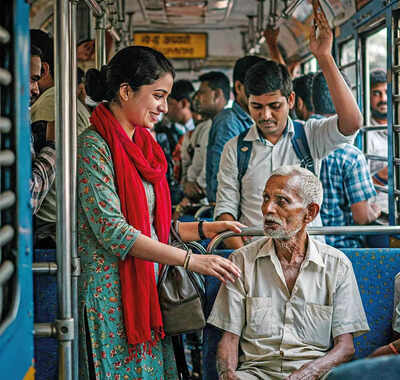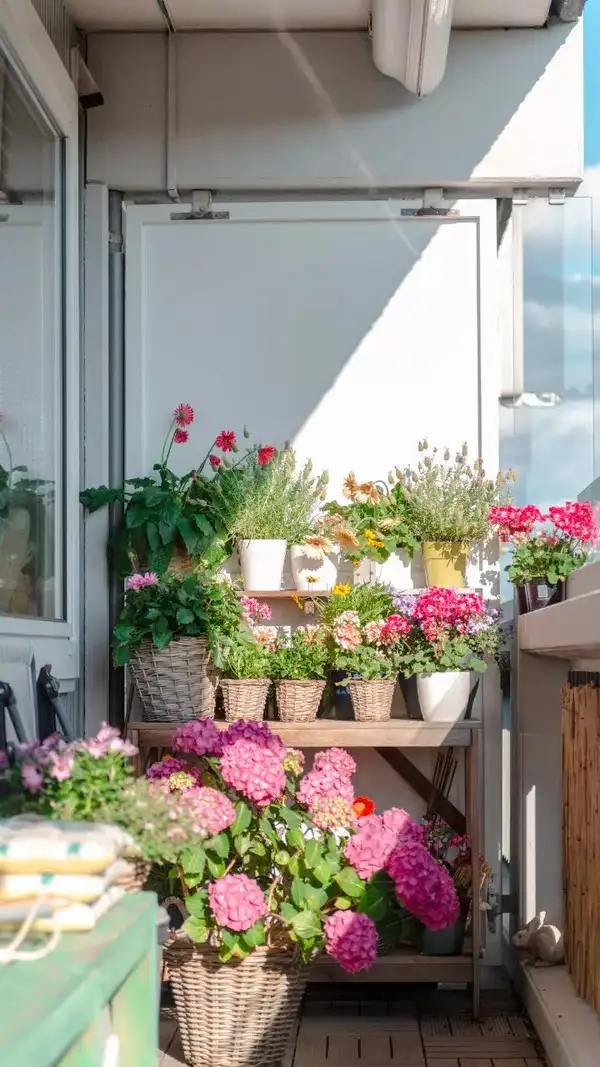- News
- entertainment
- bengali
- movies
- Are we ready to give up our seats in public transport?
Trending
Are we ready to give up our seats in public transport?
A Reddit user's bus seat gesture sparked a debate on urban courtesy. Commuters contrast Kolkata's helpfulness with Delhi's indifference. While some feel obligated to offer seats, others cite urban isolation eroding kindness. Gender bias and entitlement also play a role.
In a recent Reddit post, a man shared how the simple act of offering his bus seat to an elderly commuter led to a long conversation between the two. He called it a life-changing experience, leading to discussions about how lending a ear is not heroism, but a simple gesture to keep human connections alive. In our crowded cities, where we fight for every inch of space, giving up a seat in any form of public transport can be a polarising issue. We spoke to commuters to understand what it means in an age of urban isolation.

The nagging guilt of staying seated
According to Kshitij Sharma, a sales and marketing professional from Pune, there is always a voice in the head that tells you how the woman or elderly person needs the seat more, even if one has been out and tired all day. “More than politeness, it is something that you have been conditioned to feel so. A lot of times, it is more about us feeling guilty than the other person asking for the seat. However, giving up one’s seat for an elderly person is a normal thing and nothing that needs to be glorified but I don’t think I would do it for a healthy woman,” he added.
Examining the issue through a wider sociological lens, Sangana Ghosh, a Pune-based student, originally from Kolkata, points to the isolating effects of urban environments. “I see it from a post-modernist lens but also through how city culture promotes isolation. Urban life often disconnects people, unlike rural areas where human interaction is stronger. Without that connection, even basic courtesy tends to fade,” she adds. Bangalore-based PhD scholar Navaneel Sarangi on the other hand thinks gender bias, and how it shapes societal roles iS at the centre of this issue. “Offering a seat may seem courteous, but in the packed world of daily commuters, it’s ironic that entitlement still rests on outdated gender norms,” he says.
Where’s the common courtesy?
For Delhi-based Komal Sethi, common courtesy comes first. “I was commuting via the yellow line, and a pregnant woman got on at Malviya Nagar. A college girl was sprawled out, engrossed in her phone, while the woman struggled to stand. Eventually, someone asked the girl to shift, and she gave a weird look, as if it were an unfair demand,” says Komal, an HR at an MNC. “Refusing to give up your seat isn’t a sign of being woke,” she adds. Chirag Shah, a Mumbai based marketing professional adds, “The local train feels like a warzone – just getting a place to stand is a win. Still, I’d say Mumbaikars have their spark of kindness.”

A recent viral video captured a heated argument between a man who had refused to give up his seat, and a group of women in a crowded Delhi Metro
A pregnant woman boarded, and I gave her my seat. Passengers quickly helped her when she grew nauseous. This was an act of empathy unique to Kolkata
– Dibyajyoti Bose from Kolkata’s, experience on the Canning local

When someone gives up their seat for someone who needs it, it restores faith; refusal shows how courtesy is slipping away
– Rama Bhattacharya, a Pune-based homemaker

There is a huge difference in the way people behave in Kolkata and in Delhi metros. Here, people always make space for elderly people, but I’ve never seen that happening in Delhi
– Saurav Maitra, a banking professional

End of Article
Follow Us On Social Media
Visual Stories
Tired of too many ads?











